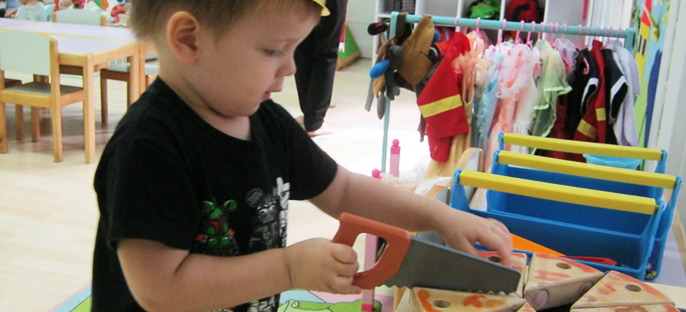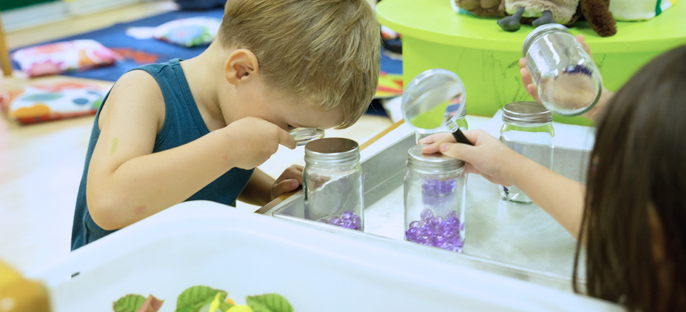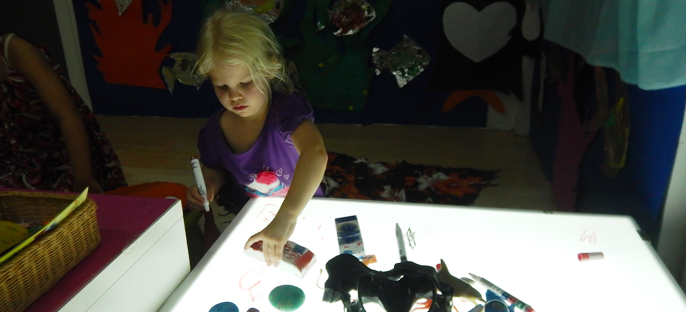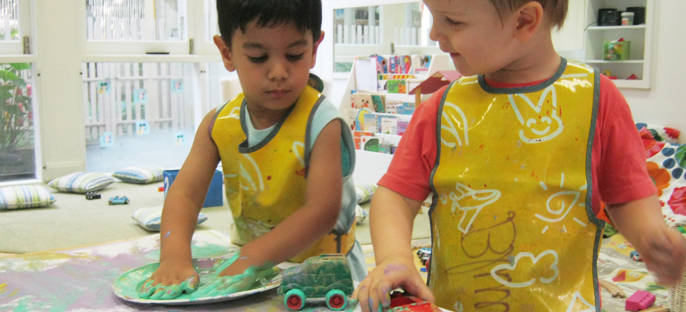
The Importance of Play

Play engages children’s bodies, minds and emotions. In playing children can learn to interact with others and be a part of a community, to experience and manage feelings and to be in control and confident about themselves and their abilities.
At Annabel's Early Years we understand that children are strongly motivated to play. They can experience satisfaction and deep learning while playing, as they bring their current interests, questions and thinking together with strong motivation, so that they are able to function at their highest level. Our teachers help children during their play to extend and scaffold children’s skills to support their global development.

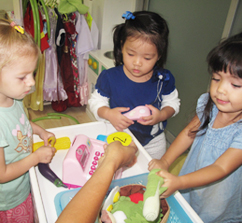
At Annabel’s we reach out to our students through their interests and create learning environments based around this. Teachers plan for the environment to ensure that all areas of the EFYS are covered, and children’s interests are followed and expanded upon. Teachers have a critical role in stimulating and supporting children to reach beyond their current limits, inspiring their learning and supporting their development.
Another reason why play is so powerful is the way it positively impacts on children’s social skills. Resolving conflict requires complex social skills. Children aren’t born with these skills, we need help to develop them, and they need to practice.
Play gives children countless opportunities to “bump” into other kids to experience conflict. The more a child practices – when to speak up, what words to use, how to find the courage to assert themselves – the more naturally they will be able to navigate the complex web of social relationships.
Learning to read and write is complex task, it starts with creating a strong foundation in language. It requires children to decode shapes into sounds and words, to remember these words correctly in written and spoken form, and to understand their meaning. It is not as simple as being able to recite the alphabet, or colour a worksheet to show pretty pictures that start with a letter. It is about developing a child’s understanding of why we have an alphabet, how sounds blend together to make words, and having the ability to hear and use these sounds.

If we link literacy skills into our play environment, we make learning skills meaningful for our students. Not only that, it is also intrinsically motivating to engage in meaningful tasks linked to play. The more children engage with practicing, with teachers scaffolding their skills, the more our children progress. Creating a classroom culture of recording, writing, and celebrating all attempts means that a child’s self belief that they “can” read and write is cultivated, and skills are expanded upon.
This is why at Annabel’s we deliver a play-based, which is developmentally appropriate to our students needs. We need to ensure they are not only learning important knowledge and skills, but also we need to ensure that we are helping them develop positive attitudes towards learning, that will help them be successful in school and later life.
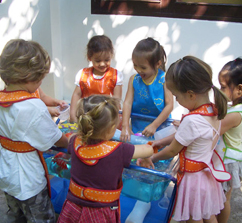
Address:
19 Ekamai,10 Sukhumvit Soi.63, Bangkok, Thailand.
Tel: 02 391 8181
© 2015 Inhouse Brand Works All Rights Reserved






